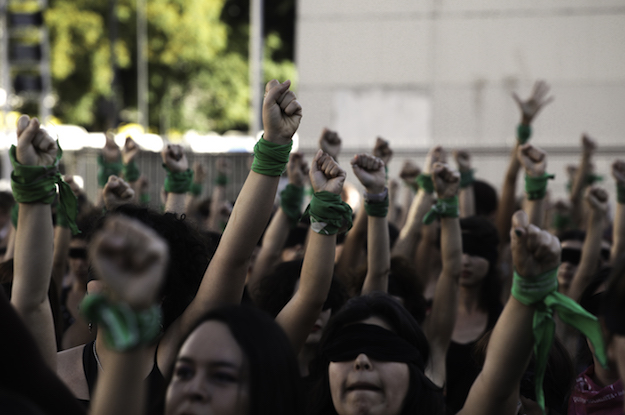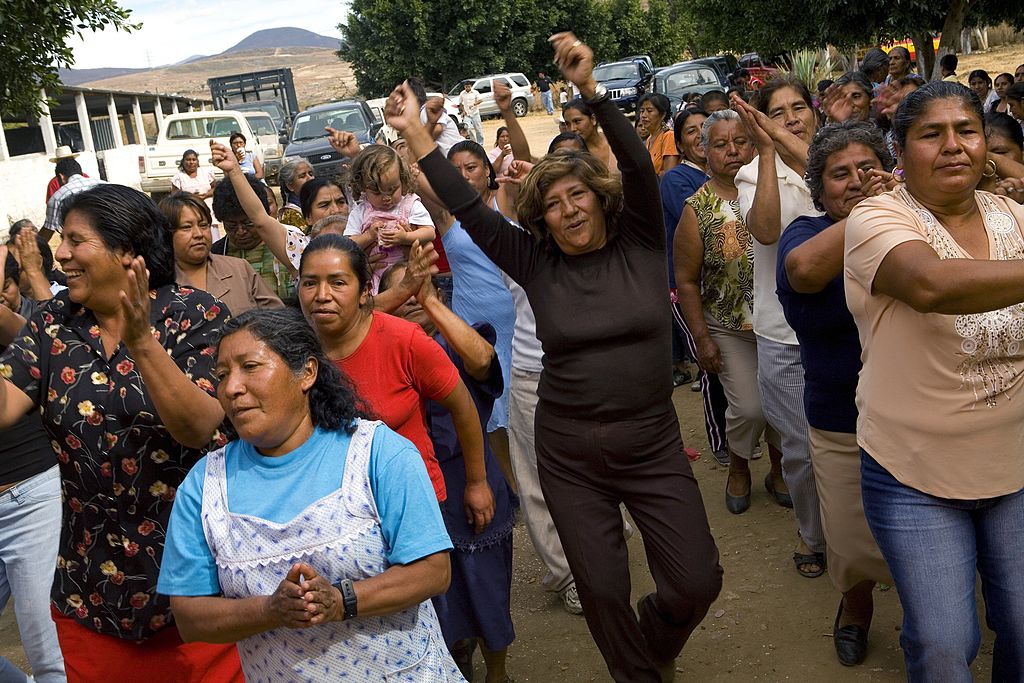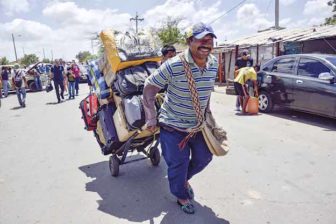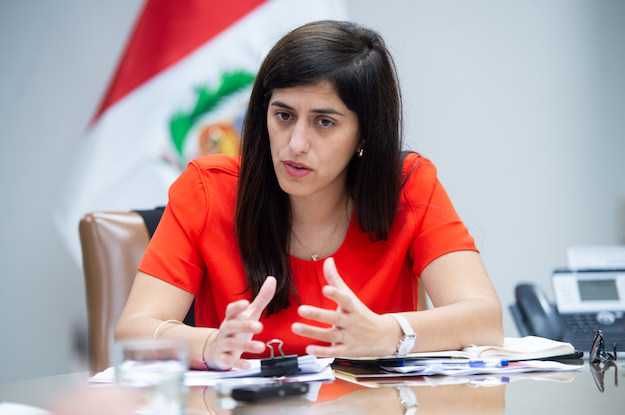BUENOS AIRES – For Argentine President Alberto Fernández, the decision to don a green tie at a recent meeting of his new government was about more than the aesthetic.
The Irish green hue has become the color of Argentina’s abortion rights activists, and Fernández’s tie matched the handkerchiefs on the wrists of many officials present at the training on gender issues. His government has only been in power for two months, but such symbolic moves reflect a progressive stance on women’s rights in a region where right-wing governments are lately more preoccupied with defending “family values” than expanding women’s rights. Turning that symbolism into real change, however, may be the real test of Fernández’s feminist bona fides.
Upon taking office, Fernández specifically referenced feminists among the social movements he hopes to include in a “new social contract,” along with young people and environmentalists. It was the first time feminists had been mentioned in an Argentine president’s inaugural speech, according to some commentators. But far more significant was the president’s promise to focus on women’s rights. Fernández noted the particular issue of domestic care, and how its unequal distribution creates gender inequality.
“Ni una Menos must be a banner for all of society and all of the republic’s powers,” Fernández proclaimed, in reference to the Argentine anti-femicide movement that has spread around the region. “The state must drastically reduce violence against women until its total eradication.”
Gender and women’s rights provide Fernández a space to make some immediate changes, which might help appease his base at a time when other problems, like inflation or unemployment, may prove more intractable.
While his cabinet is only a fifth female, women occupy important positions, including Sabina Frederic, an anthropologist heading the Security Ministry, and Marcela Losardo in the Justice Ministry. A prominent feminist lawyer, Elizabeth Gómez Alcorta, heads a new Ministry of Women, Genders and Diversity. Her cabinet includes a phalanx of women with green-wrapped wrists and the country’s first transgender appointed official. Feminist influence appears to be far reaching across the cabinet: The minister of economy added feminist economist Mercedes D’Alessandro to his team and Fernández also named a well-known feminist theorist, Dora Barrancos, as a presidential advisor.
A novel WhatsApp group called “Women Governing” reflects the new gender perspective present in Fernández’s administration, with 150 women in high-level decision-making roles making up the impromptu chat group’s ranks, including ministers and senior advisers. In fact, emboldened by Fernández’s embrace of feminism, some of them have publicly called the president out when he appears in meetings overwhelmingly dominated by besuited white men. They are determined to challenge what they consider to be male-oriented governance practices, like late night meetings, which have broader implications for social policies touching women, particularly when it comes to childcare.
The main question for the new government, perhaps, is what the rhetorically ambitious gender agenda will actually look like in concrete terms – and what might happen when the diverse governing coalition is asked to back actual policies rather than offer lip service. Though green seems suddenly omnipresent, several cabinet members and numerous lawmakers that back Fernández hold far more conservative views.
Indeed, Fernández is known for his ability to mix strange bedfellows. He won last year’s election with a broad coalition of Peronists, who span the ideological spectrum, and more leftist supporters of his vice president, former president Cristina Fernández de Kirchner. Abortion rights, the most emblematic of the Argentine feminist demands, might be an indicator for how the Fernández administration will approach controversial issues more broadly.
The president has tempered his pro-legalization stance with promises to move beyond a binary debate between “progressives and conservatives, between revolutionaries and retrogrades.” Instead, Fernández proposes a public health perspective. Tie notwithstanding, he urged Argentines to move beyond the green handkerchiefs and the light-blue ones favored by anti-abortion activists.
“There shouldn’t be two handkerchiefs,” said Fernández. “We have one problem.”
The bill the president plans to send to Congress would reportedly legalize abortion, while attempting to placate critics by including better care provisions for women who want to continue their pregnancies. Those measures, which would facilitate adoptions and improve education about contraceptives, could make the legislation more palatable to more conservative members of Congress whose votes Fernández will need to pass the Senate, where anti-abortion votes have a slight majority.
Fernández’s balancing act goes beyond internal politics. Pope Francis is an influential figure in his home country, and a stalwart opponent of abortion’s legalization. And the government has been leaning on the pontiff to influence crucial sovereign debt negotiations with the IMF, with the Pope hosting Fernández at the Vatican on Jan. 31.
How Fernández navigates the tension between tradition and progress is and will remain under a close microscope, in policy debates and elsewhere. For example, weekly soccer matches between the president and his male ministers and staff – a longstanding tradition – have raised questions about how much of a boys’ club his government will be going forward. On the other hand, the recent participation in the government matches of Macarena Sánchez, the country’s first professional female soccer player and the new head of the National Youth Institute, has been received as a sign of change.
Gómez Alcorta, the women and gender minister, seems to share the conciliatory approach the president has taken in the debates over abortion and other topics.
The men may have their soccer matches, but “we women officials have our (WhatsApp) group,” Gómez Alcorta told La Nación.
Ultimately, she and others in the new government say progress on gender will be measured not by rhetoric or players on a soccer pitch, but by long-term economic and societal changes that level the playing field for the genders. That starts with bridging progressive policies with effective implementation.
“The gap (between laws and implementation) is still enormous,” Gómez Alcorta said at the January gender training with the president. “That is the task we have to accomplish.”
—
Timerman is a freelance reporter in Buenos Aires. She edits the Latin America Daily Briefing.







